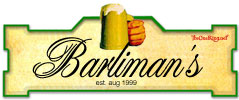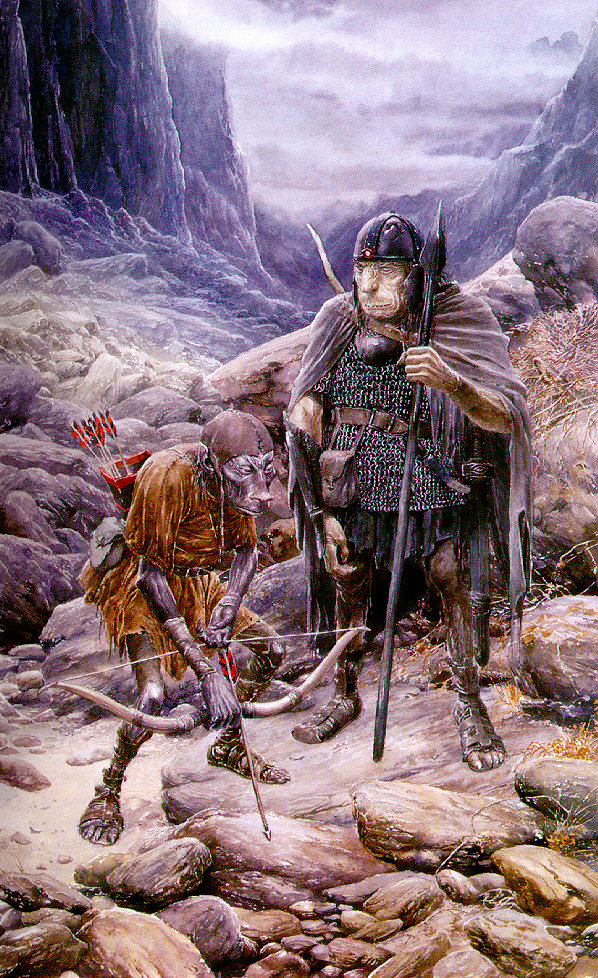 Tolkien’s orcs and goblins. What are they? Where do they come from? What is their nature? Where do they go? Do they even really have personalities or a will of their own?
Tolkien’s orcs and goblins. What are they? Where do they come from? What is their nature? Where do they go? Do they even really have personalities or a will of their own?
These are just a few of the questions we’ll be asking in Hall of Fire this Saturday at 6pm EDT.
“[Orc] occurs in one or two places but is usually translated goblin (or hobgoblin for the larger kinds). Orc is the hobbits’ form of the name given at that time to these creatures.” Tolkien’s preface to The Hobbit.
Tolkien’s orcs and goblins
Tolkien actually derived the term from an Old English word, believing it to refer to a kind of evil spirit or demon. Orcnéas, possibly meaning “evil spirits of the dead”, appears twice in Beowulf.
Does this give us some hint as to what they really are?
Early orc origins proposed they arose through the sorcery of Morgoth from “subterranean heat and slime”, and their hearts were stones like granite.
This ultimately proved unsatisfactory within a greater tale where only Eru truly has the power to originate life ex nihilo.
Tolkien toyed with many possibilities but never seems to have firmly resolved the origins of Orcs. The Silmarillion purports that Orcs were corrupted Elves; Unfinished Tales hints some may have been bred from the Druedain. The later volumes of HOME consider a number of origins: corrupted Elves, corrupted Men, minor Maiar (a small number of original Orcish leaders only), or even animals infused with Morgoth’s will.
What do you think? And do the way Tolkien portrays them in The Lord of the Rings through characters such as Ugluk, Grishnakh, Gorbag and Shagrat provide any insight? Join us this Saturday August 15 at 6pm EDT in #thehalloffire on irc.theonering.net as we look at Tolkien’s orcs and goblins.
Upcoming discussions
Saturday August 15: Tolkien’s Orcs and goblins
Saturday August 22: The Hobbit: Chapter 15: The Gathering of the Clouds
Saturday August 29: Gildor Inglorien
 Orcs track Frodo and Sam by Alan Lee.
Orcs track Frodo and Sam by Alan Lee.Time zone conversions
Not sure what time the chat will be where you are? Check this little conversion table out for some help. Alternatively, check our handy Event Announcer over on Time and Date for the correct time in your area.
America:
6.00pm EDT (New York)
5.00pm CDT (Chicago)
4.00pm MDT (Denver)
3.00pm PDT (Los Angeles)
Europe:
11.00pm BST (London)
Midnight CST (Paris)
1am EEST (Helsinki)
Asia-Pacific
8.00am AEST (Sunday) Brisbane, Sydney, Melbourne
10.00am NZST (Sunday) Wellington
How long do your topic chats go for?
Our chats usually last about an hour, and are very newbie friendly. Simply drop in and join the conversation! However, our main room, #theonering.net is open 24 hours a day. We don’t always talk Tolkien there, but if you have a burning question, you’ll usually find one or two of “the regulars” up for a chat!
Where — connection details
Chat happens on #thehalloffire on irc.theonering.net — the TORn IRC server. It is based on internet relay chat technology (that means it’s hella old skool). It’s a text-only, moderated chat room full of eccentric Tolkien fans. We’re open 24/7 (although some times are busier and more active than others).
There are many ways to connect to the chat server. However, the easiest is generally to use a browser-based client. We usually direct folks to Mibbit:
* TORn Mibbit Widget
* Mibbit direct (as opposed to the widget above, this allows you to see others joining and leaving)
If you’re more oldschool or technically adept, you can install one of the scores of standalone chat clients that available for desktop and mobile devices. Just plug in our server details (see bottom) into the client and connect.
* Xchat: http://xchat.org/ (Windoze PC and Linux. Free)
* mIRC: http://www.mirc.com/ (Windoze PC. 30-day trial)
* AndChat: http://www.andchat.net/ (Android app for mobile. Free)
* Colloquy: http://colloquy.info/ (Mac OS and Apple mobile devices. Free)
Our server details:
IRC server name: irc.theonering.net
Channel/room name: #theonering.net
Port: 6667 (6697 for SSL connections)


